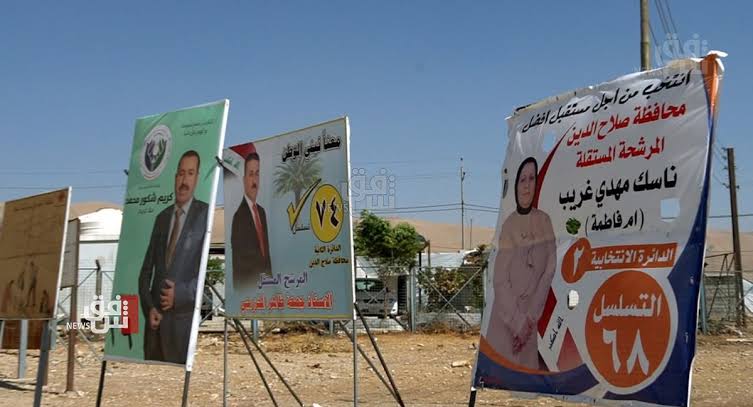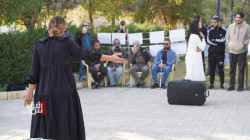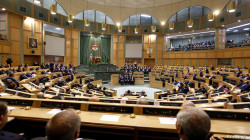In Iraq, males lead while women remain sidelined from decision-making

Shafaq News/ Women in Iraqi politics face male dominance. Despite no laws blocking them, they haven't held top positions yet.
"Even if I were offered the position, I wouldn't think about becoming the head of the Provincial Council," a member of the Karbala Provincial Council, who secured a seat without the quota system, told Shafaq News.
"Our society favors men, making it tough for women to compete," she explained, adding that this was a key reason why women haven't taken the helm of provincial councils in Iraq.
Women won 76 seats in Iraqi provincial councils held last December, with 17 winning without relying on quotas and three topping their lists.
In the provincial council elections, the law reserves over 25% of seats for women, totaling 75 out of 285 seats (excluding the Kurdistan Region).
On the other hand, the Iraqi Constitution grants women equal rights to participate in public affairs and political activities, including voting and candidacy, under Article 20.
Male Dominance in Society
In a society where men hold sway, the Karbala Provincial Council member, who requested anonymity, explained that Iraqi society always leans towards men.
"Positions are often distributed through quotas and political wrangling," she said.
"When suggesting a woman for a role, the immediate response is often, 'Isn't there a man available for this position?" revealed the council member, adding that Islamic parties reject women's leadership.
"Given the current circumstances and political conflicts, women, including myself, aren't considering taking on the presidency of a provincial council," she added.
"The issue is bigger than just women holding such positions. Even if offered, I wouldn't accept it under these conditions."
"For now, it's better for women to step back, especially since they can easily be sidelined. However, attitudes might change in the future, allowing women to take on more significant roles in provinces," she stressed.
The current cabinet, led by Mohammed Shia al-Sudani, has only three women out of 23 ministers, making up just 13%. Meanwhile, 83 out of 329 seats in the Iraqi Parliament are reserved for women, which is 25%.
In the latest parliamentary elections held in October 2021, women surpassed the quota, securing 97 seats, with 57 winning without relying on quotas.
During the provincial council elections on December 18, 2023, in 15 provinces (excluding the Kurdistan Region), over 1,600 women competed among approximately 6,000 candidates for council seats.
According to estimates from the Central Statistical Organization, females comprise 50% of Iraq's population.
Leadership, Conflict
Political analyst Nadia al-Kaabi backed the council member's remarks, reiterating that the absence of women in senior positions in provinces, such as governor or council chairperson, has been commonplace since 2003.
She attributed this to a male-dominated political mindset, which doesn't allow female leadership amid the political blocs' rivalry over these positions.
"So, women remain recipients of decisions, whether as members of provincial councils or parliament," said Al-Kaabi.
"Without quotas enforced by political blocs, no woman would have been nominated," she explained.
"This calls for political management to change and give women a bigger role, creating projects that serve women and involve them in the political process, shifting them from recipients to decision-makers," underlined Al-Kaabi.
Female Workforce Participation
According to the US-based CEOWORLD magazine, Iraq ranked 95th and last in terms of the percentage of women in the workforce for 2024.
The magazine's report highlighted obstacles preventing women from joining the workforce, such as tax distortions, discrimination, and social and cultural factors, which are more costly than previously thought.
Iraq ranks 95th and last in the lowest percentage of women in the workforce, with only 10.76% of females participating in the workforce, leaving men to dominate most jobs in the country, as per the report.
The magazine also noted that although the Iraqi government has made some efforts to improve women's rights, various obstacles still prevent women from gaining equal rights and the ability to work.
Law, Women in Office
Legal advisor Khairiya Mahdi Saleh affirmed that Iraqi law doesn't prohibit women from holding executive positions, especially the country's top offices and the presidency of provincial councils.
"However, political blocs control these matters," Saleh told Shafaq News.
"There are many female leaders, and women are less prone to corruption than men," she argued.
"However, current political circumstances hinder women's empowerment."
"For example, I conducted a study on the matter, but it faced a lot of objections from men who were not keen on empowering women," she revealed.
The plight of women in Iraqi politics highlighted the persistent challenges of gender inequality, societal biases, and political complexities.
Despite legal provisions advocating for equal participation, women continue to face formidable barriers in ascending to leadership positions, with entrenched norms favoring men.
Through transformative measures, Iraq can pave the way for a more equitable and inclusive political landscape where women's contributions are acknowledged and catalysts for positive change.





